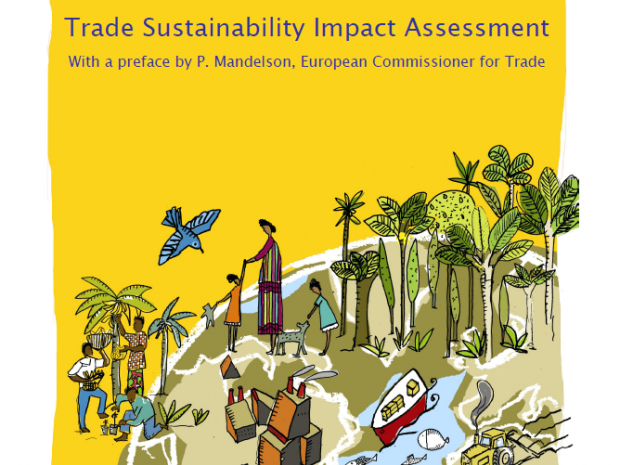Handbook for Trade Sustainability Impact Assessment (EC, 2006)

The experience of the European Commission’s trade department (DG TRADE) so far in implementing Trade Sustainability Impact Assessment (Trade SIA) projects has highlighted the need to improve the methodological framework. The Commission started this process in February 2003 with a seminar in Brussels which took stock of developments and identified priorities for the future, with input from governments and civil society, from Europe and elsewhere. This handbook, compiled after the first six years of the Trade SIA project, is intended to further this process. It describes how Trade SIAs currently work and lays out some of the issues and principles that require attention from both Trade SIA practitioners and policy makers. This first edition will improved, updated and made available to all potential actors involved, explaining what role they can play, and how. Below, we summarise the story so far.
How does sustainability fit into EU policy-making?
Sustainable development was defined in the Brundtland Report entitled ‘Our Common Future’ (1987) as “development that meets the needs of the present without compromising the ability of future generations to meet their own needs”. The idea was put on the map at the 1992 Earth Summit in Rio de Janeiro which launched Agenda 21, a comprehensive plan of action to be taken globally, nationally and locally by organizations of the United Nations System, governments, and major groups in every area in which human activity has an impact on the environment. Since then, the concept of sustainable development has emerged as a key element in policy-making. All involved have been asked to design policies good for economic growth but also good for sustainability. Thus, they need to build in responsible management based on trade-offs between economic, social and environmental needs and they must be sensitive to longer term needs. Sustainable development is a key strategic objective set out in EU primary law (The Treaty) as well as in international decision-making processes such as the UN Millennium Development Goals, follow-up to the International Conference on Financing for Development in Monterrey (2002) and the preamble of the Doha Development Agenda currently being negotiated under the auspices of the World Trade Organisation (WTO).
You can find more information on: http://ec.europa.eu/trade/
Log in with your EU Login account to post or comment on the platform.